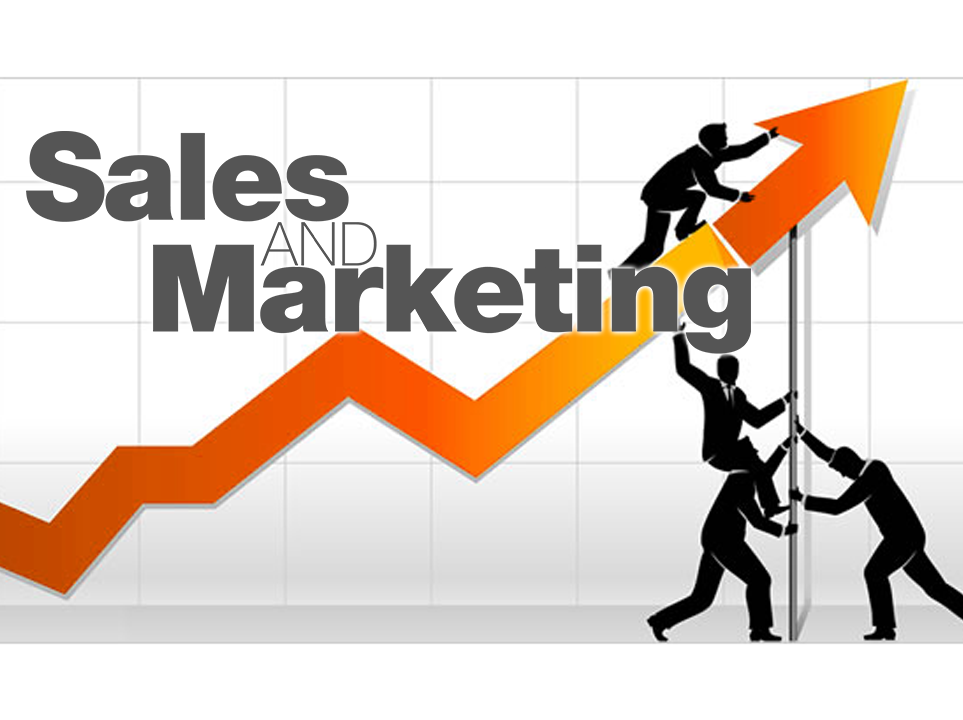Technology is transforming sales and marketing, creating more eminent, customized, and impactful strategies. From AI-powered analytics to automation tools, businesses can now better understand customer behavior, predict trends, and tailor campaigns for maximum engagement. Platforms such as CRM systems enhance relationship management, while tools like chatbots and social media analytics streamline customer interactions and feedback collection. Moreover, technologies such as augmented reality (AR) and virtual reality (VR) are revolutionizing how products are showcased, offering immersive experiences. This digital shift not only uplifts operational efficiency but also empowers businesses to connect with customers in more meaningful and innovative ways.
Introduction to Sales and Marketing
Sales and marketing are two very important pillars of any successful business, working in tandem to drive growth, customer engagement, and revenue. While marketing focuses on creating awareness, building brand value, and attracting potential customers through strategies like advertising, digital campaigns, and market research, sales convert these leads into paying customers by building relationships and providing tailored solutions.
The concept of sales and marketing circles around understanding customer needs, positioning products or services effectively, and creating value. In today’s competitive landscape, businesses depends on innovative tools and data-driven strategies to stay ahead.
A sales and marketing course equips professionals with the skills and insights to master this dynamic field. It offers in-depth knowledge of customer behavior, digital tools, and innovative techniques, enabling learners to craft effective strategies. By gaining a detailed understanding of these concepts, individuals can drive impactful results, enhance business growth, and thrive in a competitive marketplace.
Sales and Marketing in Technology: Driving Innovation and Growth
1. The Role of Sales and Marketing in Technology
Sales and marketing in the tech industry focus on connecting innovative products and solutions with the right audiences. These functions go beyond traditional strategies, inculcating advanced tools and platforms to highlight the benefits of cutting-edge technologies like AI, SaaS solutions, and IoT devices. The process includes understanding complex customer needs, crafting value-driven messaging, and delivering tailored solutions.
2. Integration of Digital Tools
With the rise of technology, sales and marketing have evolved to include data analytics, CRM systems, and AI-powered tools.
- Example: Salesforce uses AI in CRM software to improve customer relationship management, improving lead conversions.
Digital channels such as social media and email campaigns also allow targeted outreach, maximizing efficiency.
3. Evolution of Tech Sales and Marketing
Over the years, the tech industry has moved from a product-centric to a customer-centric approach. Early sales used to depend on in-person pitches, while modern methods leverage virtual demos, webinars, and AR/VR experiences for immersive product showcases.
- Example: Tech giants like Apple focus heavily on experiential marketing, creating deep emotional connections with customers.
Sales and marketing in technology are now driven by innovation, fostering customer relationships and brand loyalty. As tools and strategies continue to evolve, this field will remain crucial in connecting cutting-edge technologies with the world.
How Technology is Revolutionizing Sales and Marketing?
- Data-Driven Decision Making
- Advanced analytics tools help businesses understand customer behavior, preferences, and purchasing patterns.
- Example: Google Analytics provides insights into website traffic and customer engagement, enabling targeted campaigns.
- AI and Machine Learning
- AI automates repetitive tasks like lead scoring, customer segmentation, and personalized messaging.
- Example: ChatGPT-based customer support tools enhance user experience and resolve queries instantly.
- Automation Tools
- Marketing automation platforms streamline email campaigns, social media posts, and follow-ups, saving time and improving efficiency.
- Example: HubSpot automates email sequences for nurturing leads.
- Enhanced Customer Interaction
- Chatbots and virtual assistants provide 24/7 support and quick responses, boosting customer satisfaction.
- Example: Chatbots on e-commerce platforms assist in product recommendations.
- Social Media Advertising
- Platforms like Facebook and LinkedIn allow precise targeting based on demographics, interests, and behaviors, maximizing ROI.
- Example: A SaaS company targeting B2B clients through LinkedIn ads for lead generation.
- AR and VR Experiences
- Immersive technologies enable customers to visualize products virtually, enhancing engagement.
- Example: IKEA uses AR to let users visualize furniture in their homes.
- CRM Systems
- Centralized platforms like Salesforce help manage customer relationships, track sales, and predict trends.
Technology empowers sales and marketing professionals to deliver personalized, efficient, and innovative solutions, creating stronger connections with customers and driving business growth.
Revamping the Future of Sales and Marketing with Technology
Technology is revolutionizing sales and marketing, creating a future driven by innovation, efficiency, and customer-centric approaches. Advanced tools like AI, machine learning, and automation are enabling businesses to analyze consumer behavior, personalize interactions, and optimize campaigns with unprecedented precision. For instance, companies like Amazon use AI to provide tailored product recommendations, enhancing customer experience and boosting sales.
Digital marketing platforms like HubSpot and Salesforce integrate CRM, analytics, and automation, streamlining lead generation and nurturing processes. Social media platforms and tools like Google Ads empower marketers to target specific audiences based on behavior and preferences, maximizing ROI. Immersive technologies like AR and VR are transforming product demonstrations, as seen with IKEA’s AR app, which allows customers to visualize furniture in their homes.
To thrive in this tech-driven environment, mastering advanced sales and marketing concepts is crucial. Enrolling in sales courses equips professionals with the knowledge and skills to harness these innovations effectively. These courses provide insights into leveraging technology for data-driven strategies, creating personalized customer journeys, and improving campaign performance.
By combining technological advancements with strategic expertise, sales and marketing professionals can drive impactful results, reshape customer engagement, and build resilient strategies for a future-ready marketplace.
Conclusion
Technology is fundamentally transforming sales and marketing, enabling businesses to connect with customers in innovative and efficient ways. From AI-powered analytics and automation to immersive AR/VR experiences, technological advancements are redefining customer engagement, campaign optimization, and operational efficiency. Tools like CRM systems, data-driven strategies, and personalized marketing approaches have empowered organizations to stay competitive in a rapidly evolving marketplace. As businesses continue to adapt to these changes, professionals must embrace these tools to create meaningful customer experiences. Technology is not just enhancing sales and marketing; it is setting the foundation for future growth, innovation, and sustainable success.





Be First to Comment